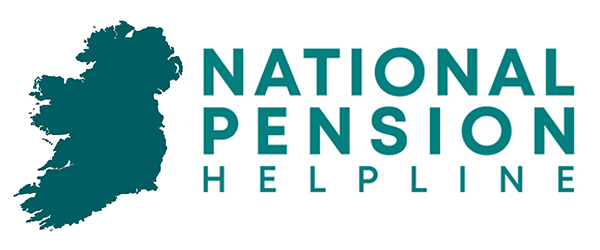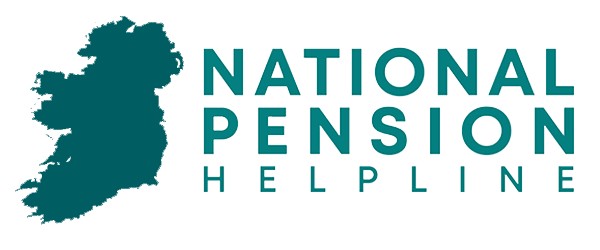Be prepared for your retirement by making sure you have a good pension plan
It’s impossible to over-prepare for retirement.
While some of us try to ignore the looming later years throughout our lives, we all hit a point where we’re faced with the reality that if we don’t start planning for retirement now, retirement is going to be a difficult part of our lives. But it doesn’t have to be.
Too many people’s pension plan involves relying solely on the state pension. Infact, 1 in 3 workers in Ireland have no pension plan at all.
But the State pension is tiny providing €253.30 per week. This probably won’t be able to match the standard of living you have in employment – so no matter what stage of the retirement journey you are on it’s important to take steps to improve your pension plan immediately.
If you don’t know where to start, we have 2 helpful resources that will allow you to speak to a pension advisor free of charge.
Table of Contents
Do you have a clear pension plan?
Being ready for retirement is a financial planning question as well as a psychological one. From a financial perspective, you need to start with a tax-efficient way of accumulating wealth that is free of all taxes and free of risk, i.e. that it cannot be confiscated if you ever go bankrupt etc.
Are you mentally prepared for the shift that will happen in your life when your career ends? Are you looking forward to having lots of time off or does it create a feeling of dread?
Many people manage to have incredibly fulfilling post-retirement lives and they achieve this through careful planning. Having a sound pension plan in place tends to make the entire process more manageable and makes it something to look forward to.
A good pension plan will allow you to forecast you income in retirement and therefore plan accordingly. In our minds it’s by far the most important investment of a working adults life.
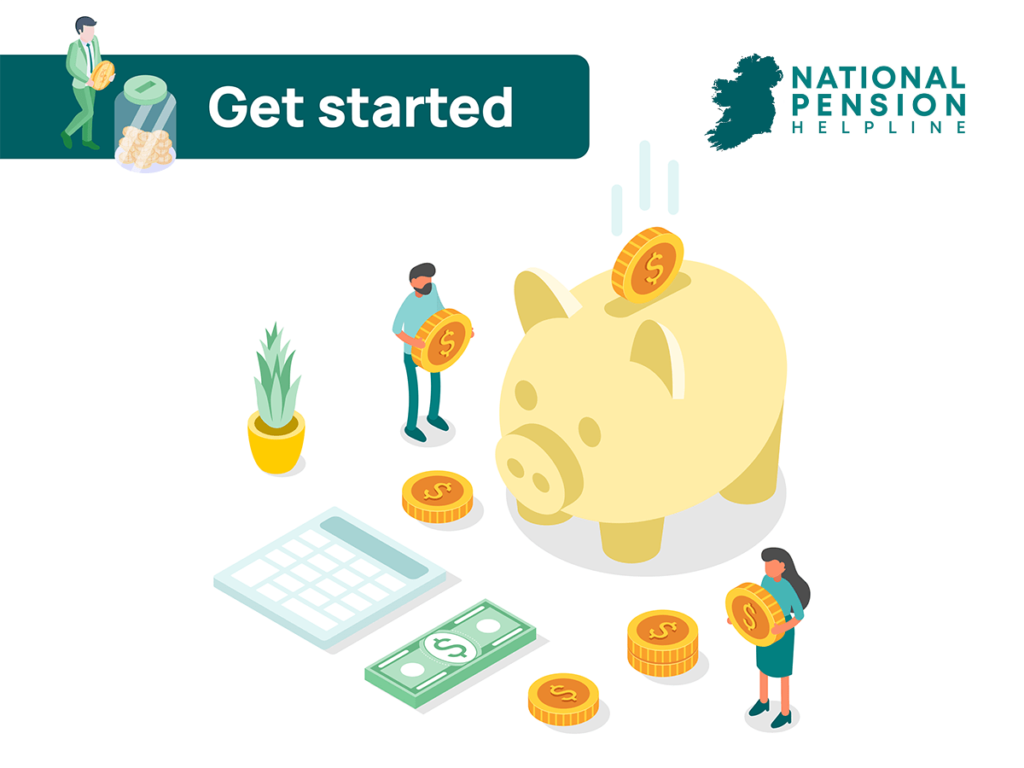
Have you planned retirement?
Many people were very sensible early in life and planned for their retirement by investing in the right kind of schemes and managing their financial future. However, many others did not. We didn’t all have the opportunity to become members of company pension schemes or to invest in private pension arrangements. Consequently, financial institutions have created a number of ways to help people prepare for retirement later in life.
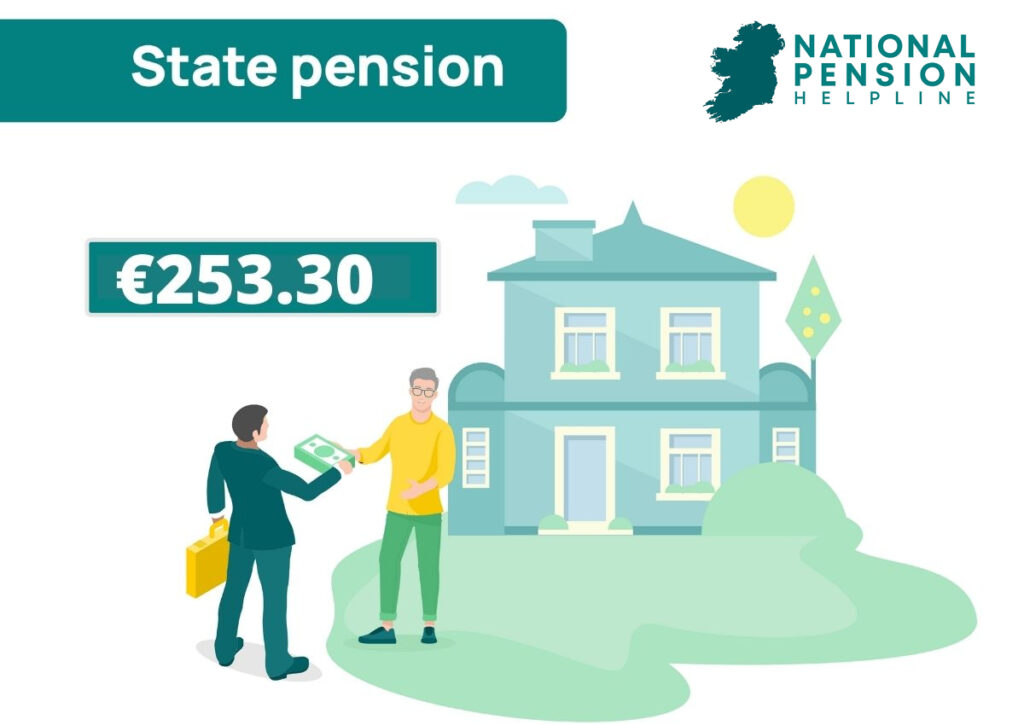
Is a state pension enough to afford your lifestyle?
Generally, the state pension is not enough to meet the expenses of the standard of living we enjoy while working. It equates to around €253.30 per week and, adjusted for future inflation, will be worth less than that. Investing in a private or company pension is intended to operate in tandem with the State pension and provide a combined pension pot that will allow us to enjoy our retirement years.
What age can I access my pension?
If you have an occupational pension with your company you may be able to access it from the age of 50, depending on the rules of your company and the trustees of the pensions scheme.
Personal Retirement Savings Accounts (PRSAs) are also accessible from the age of 50, particularly if you have left employment or experienced illness or other conditions that affect your ability to work.
In general, personal pension arrangements allow for drawdown of your pension pot from the age of 60. Again this is subject to the rules of the scheme itself.
Age to get State pension
The State pension is currently available from the age of 66 in the Republic of Ireland for those people who have paid enough PRSI payments. The State pension is not means tested. You can have other income, including paid income, and still receive it.
Is the age of state pension likely to change?
Due to advances in medicine and lifestyle, we are living longer and longer and helthier lives. This has taken a toll on the state pension system. To help with this issue the state is set to increase the age of access to the state pension from 66 to 68. However, this is not likely to be implemented until 2039.
It has been proposed that the age of access will increase by 3 months a year from 2028 to 2039.
What is the Irish Pension contribution threshold in Ireland?
The money you invest in a pension scheme can benefit from tax-free allowances. It is based on tiered thresholds according to your age and the process is designed as an incentive to save for retirement. The following outlines the tax free allowances depending on your stage of life. It indicates the amount of tax-free earnings you can save per threshold. There is an upper limit of €115,000 that can be saved tax free.
| Age | Percentage of earnings |
|---|---|
| Under 30 | 15% |
| 30-39 | 20% |
| 40-49 | 25% |
| 50-54 | 30% |
| 55-59 | 35% |
| 60-plus | 40% |
Note: The contributions made are eligible for tax relief up to a maximum of €115,000
I want to retire early from my occupational scheme
If you plan to retire early you have options around how it will affect your pension scheme and how soon and how much you can draw down immediately. If you are in an occupational scheme such as a defined contribution pension scheme with your company and retire early, you are entitled to draw down a tax free lump sum representing 25% of your total pension pot value. This is an attractive option to anyone choosing to take early retirement and can be a useful lump sum at a stage of life when it can be put to very good use.
Many people use this lump sum to travel, improve their homes or simply reduce other debt that they are carrying at this time, thus making their retirement period easier.
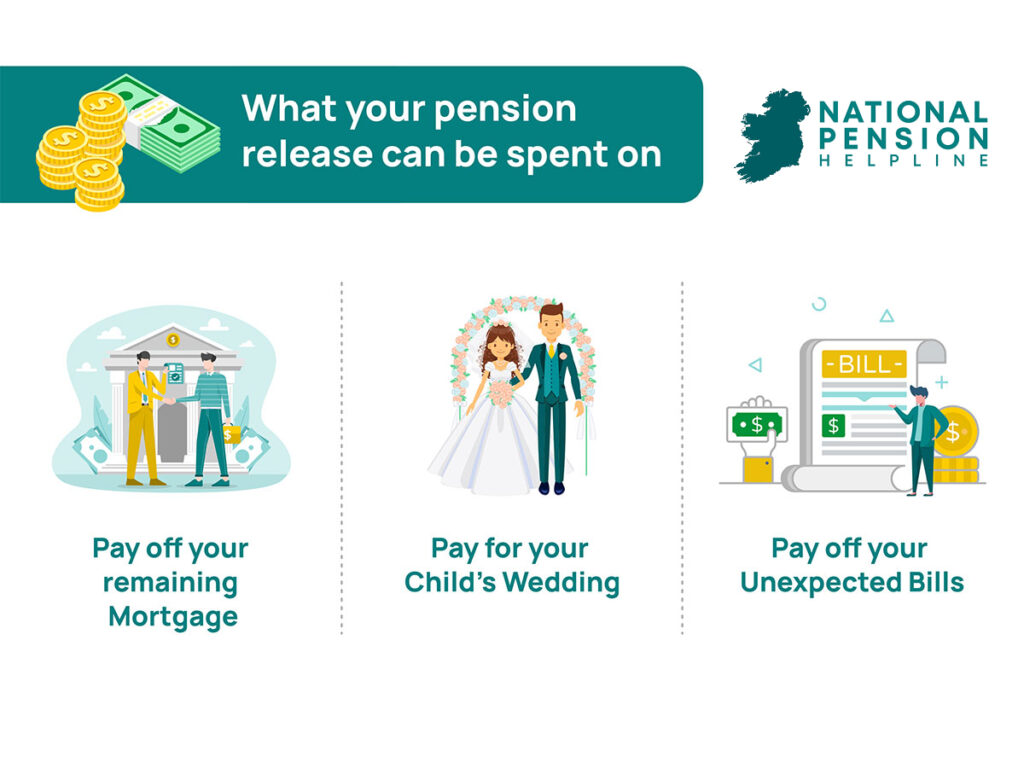
I’m looking to retire early from my …
PRSA- Personal Retirement Savings Account
A Personal Retirement Savings Account (PRSA) is a personal financial product that you can take out regardless of any other pension schemes that you may be involved in. It is very popular with self-employed people, for example, who may not have access to a contributory pension as they don’t have a company employing them. You can access a PRSA pension pot from the age of 60 but if you decide to retire early you can arrange to draw down funds from the age of 50. This is something that is managed by the rules of each scheme and the financial institution that controls the scheme. If you think this may be something that you would like to avail of, make sure and take advice from an independent pension advisor.
The amount you can draw down tax-free differs between schemes but it is often 25% of your total pension pot, up to a limit of €200,000. Again, before making decisions around this it is useful to discuss your particular situation with an independent pension advisor.
Personal Pension
Personal pensions are similar to PRSAs in that they are not linked to a particular job but rather to the person who takes them out. They are offered by financial organisations and like PRSAs are popular with self-employed people. If you wish to draw down funds early you can usually do so from the age of 60.
SSAS – Small Self-Administered Scheme
A Small Self-Administered Scheme (SSAS) is a company pension that is managed internally by a trust for a company that is not part of a larger scheme. It is usually operated within a small limited company with benefits for its employees.
In general, and according to its rules, you can start to withdraw funds in the case of early retirement from the age of 50 years old. An SSAS is a good product for those people who want to have more direct control over their investment contributions. It is a type of occupational scheme and operates in a similar way, but due to its size can offer more flexibility than if you are part of a large occupational scheme.
Decisions to make before you retire
Should I transfer to a Personal retirement Bond (PRB)?
In the build-up to retirement age you will be faced with a number of decisions that will affect your pension pot in the future and how it is administered. You can choose to transfer your occupational pension into another investment retirement vehicle such as a Personal Retirement Bond (PRB). This is a way of transferring your pension when you are moving jobs. It is particularly useful if you were part of an occupational scheme such as a defined benefit pension scheme and have left that employer, for example. The value of the defined benefit scheme can be transferred into a bond so that you can continue to protect and grow your investment regardless of any new employer’s scheme or in the absence of one.
Can I live off my state pension?
The majority of people cannot live off their State pension alone. It is a small weekly amount and rarely matches the cost of living that the individual has experienced throughout their lives. Their private or company pension is designed to complement the State pension and match the amount of money they need each month to maintain their standard of living.
What is the right option for me?
Everyone’s retirement plan is personal to them. It takes into account the number of years a person has worked and contributed to a pension fund, the value of that fund and the value of any property or other assets that a person might own.
To properly evaluate your own personal retirement situation you need to discuss it with an independent pension advisor. They will be able to evaluate your plan and how it might unfold in the future. They will also be able to assist you in making decisions around next steps in your retirement as you get closer to it.
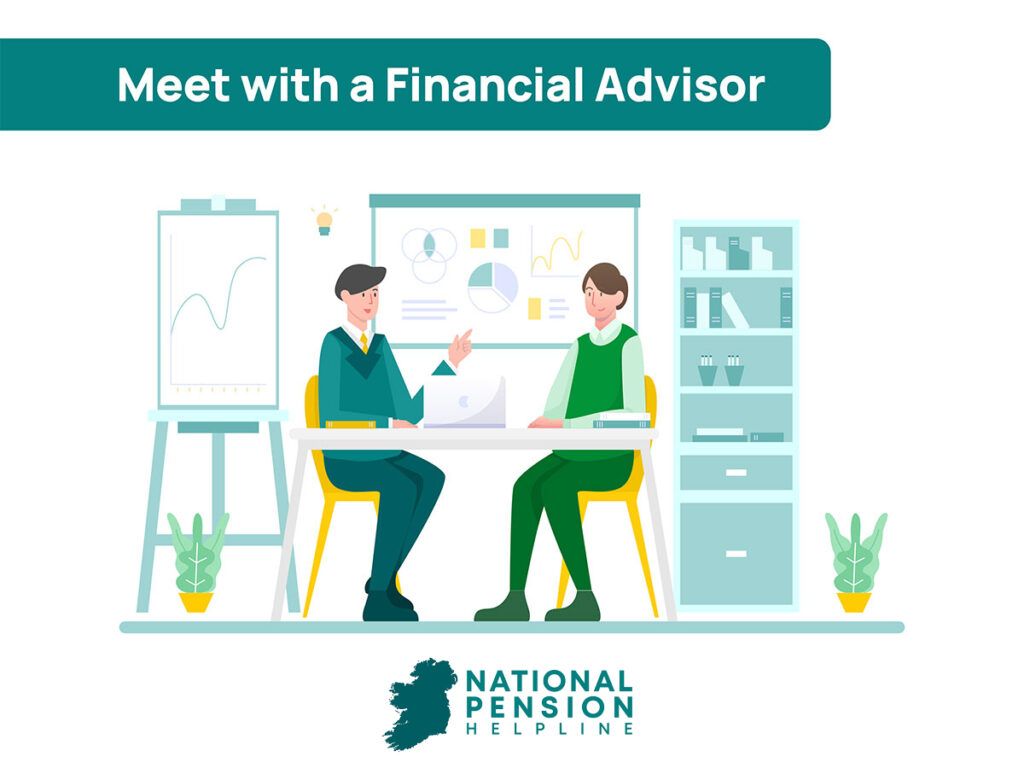
AMRF
What is an AMRF?
The term AMRF stands for Approved Minimum Retirement Fund. When you reach retirement age or take early retirement you will have the option to transfer your pension into an Approved Retirement Fund or an Approved Minimum Retirement Fund (which are no longer available) . These are investment funds built from the residual amount remaining in your pension pot after you draw down. The goal is to ensure you have a guaranteed income of €12,700 per annum, including the State pension.
ARF
What is an ARF?
An Approved Retirement Fund is a personal pension fund set up by a financial company such as a pension provider. It allows you to pay into it with contributions of varying sizes and these contributions are used to invest in your future pension pot. It differs from a contributory pension in that it is not tied to a job and you control the size of your contributions.
Many people take out an ARF in addition to their normal pension arrangement with their company to ensure that they access the very best benefits in the pension market. If you feel that this is something that you would like to explore, then contact an independent pension advisor for advice on your specific circumstances.
You are also free to decide the size of the withdrawals you make from the fund during retirement. From the age of 60 you are required to take a minimum of 4% but you can also take more than that if need-be. Obviously the downside of this is that if you take too much in a short period of time you may be left with very little left in the fund in the later years of retirement.
Do I pay tax on my ARF?
Yes, you will be taxed on withdrawals from your ARF.
An imputed distribution is an assumed withdrawal of a certain percentage from your ARF or Vested PRSA. You must pay income tax, PRSI and USC on at least this amount each year. Actual distributions from your ARF and/ or Vested PRSA each year can be used to reduce your imputed distribution liability.
Why should someone start an ARF?
An ARF is a flexible pension scheme that suits people’s lifestyles and changing incomes. You have more choice over contribution levels and opportunities for drawdown.
There are no limits to withdrawals, withdrawals are tax-free and if you die your funds will be passed to your partner or children. In the case of children receiving the benefit of your pension, they will pay a 30% tax on the fund.
What are reasons to not start an ARF?
We are telling you this to be totally transparent:
What is an Annuity?
An Annuity is a simplified pension arrangement that guarantees you a set monthly payment in retirement. It is essentially a contract between you and an insurance company over a long period of time that manages your contributions to a fund that ultimately pays out a monthly retirement payment.
Transfer Value
What is Pension Transfer Value?
You will be given a Transfer Value when you are considering moving your pension to another financial product. This is the amount of money you have accumulated over your working life in your pension pot. Your current provider will be able to give you this information.
You can expect to receive a document that sets out your transfer value; details of any benefits you have built up over the years; what costs might be accrued to you by transferring (exit fees and charges); technical information that your new pension provider will need to make the transfer.
Is my transfer value a fixed amount?
The transfer value is not a fixed amount – it can fluctuate depending on performance over a given time period so the value you receive today may be different in six months’ time. It may have gone up or down. For this reason, it is important that if you are considering a move over a long period of time before making a decision, make sure and request updated transfer value data every few months.
Defined Benefit Pension
If you are in a defined Benefit Scheme you may have been given an Enhanced Transfer Value. This is an additional value provided by your pension scheme trustees to encourage you to move your pension to another product. This can happen because Defined Benefit pensions have become very costly to operate and the trustees of the arrangement need to manage the number of people within the scheme. Otherwise they may not have the funds to provide the benefits required to all members in the future. Consequently they are attempting to reduce the number of members in the Defined Benefit Scheme.
Deferred Members
If you left a company that operated a Defined Benefit scheme then you will still be eligible for benefits for that scheme based on your years of service. If you fall into this category you are known as a Deferred Member. Deferred members are generally offered an Enhanced Transfer Value to encourage them to move out of the scheme.
What is a Buy-Out-Bond (BoB)?
As a deferred member, you have the option of leaving your benefits within that Defined Benefit Scheme until retirement or transferring the fund value to your own individual personal pension policy. This policy is known as a Buy-Out-Bond (PRB).
Do I still pay tax after I retire?
You are entitled to work and still access your pension in retirement. Many people do take on part-time or intermittent roles during retirement years simply to keep themselves busy. They have a lot of skills and experience that can be put to good use. This will not affect your State or private pension payments. However, everyone receiving a taxable income must pay tax in the normal way, regardless of age. However, there are some exemptions for people who are over the age of 65. Currently there are exemption limits in place for people aged over 65. These limits allow you to earn income up to a certain level before you are taxed. For a single or widowed person, the limit is €18,000. Anything earned below this level will not be taxed. For a married couple or two people in a civil partnership the exemption limit is €36,000. If you have dependent children there are additional amounts added. It is currently €575 each for the first two children and €830 for any subsequent children.
In addition to the personal tax credit that everyone paying tax under the PAYE system is entitled to, people aged 65 and over will also receive an Age Tax Credit. This is currently €245 for single or widowed people and €490 for a married couple or a couple in a civil partnership.

Begin planning your pension today
Pension planning is complicated and time consuming but is a very beneficial activity to engage with. You don’t have to do it alone and indeed it is strongly advised that you contact a pension provider for advice at every step of your pension planning. For most people, their pension is the largest investment they will ever make and it can pay dividends when managed properly.
